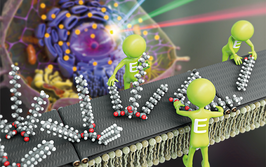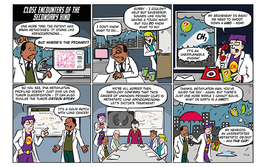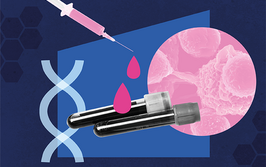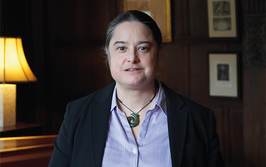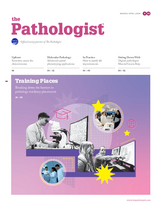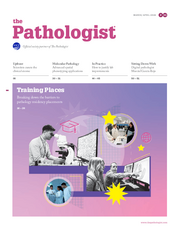
Supercharged Hematopathology Sequencing
How are whole-genome and whole-transcriptome sequencing changing the face of hematopathology?
George Francis Lee | | 3 min read | News
Whole-genome sequencing (WGS) and whole-transcriptome sequencing (WTS) have become increasingly important research tools in recent years. Skyrocketing advancements in sequencing technology and computational analysis, as well as the race to bring running costs down to US$1,000 (with some now aiming for US$100), have created an environment in which genomic and transcriptomic information is readily available – allowing us to understand the genetic mechanisms behind every field of disease.
And hematopathology is no exception. At the 2022 American Society of Hematology Meeting and Exposition, dozens of posters and presentations focused on WGS and WTS in the hematological space – and we’ve put together a curated breakdown of some of the highlights!
The unusual suspects
Can whole-genome and transcriptome sequencing (WGTS) help us detect unusual pathologies without sacrificing accuracy? One group of researchers compared the value of WGTS in a real-world setting to that of standard-of-care genetic diagnostics (1). For their study, the researchers analyzed a total of 113 patients (97 with acute myeloid leukemia and 16 with acute lymphoblastic leukemia). Of the 333 mutations present in this patient population, ~92 percent were successfully identified by WGTS.
Only targeted sequencing was able to detect subclonal mutations – the remaining ~8 percent of mutations – due to the higher read depth needed. However, thanks to its wider analytical scope, WGS spotted 40 mutations that were missed by targeted sequencing. The results illustrated that WGTS is capable of the same diagnostic accuracy as standard techniques – and the authors conclude by highlighting the additional important prognostic information, potential new therapeutic targets, and disease biology insight WGTS can offer.
Benchmarking
IGHV mutation status (IGHVms) is used in chronic lymphocytic leukemia (CLL) to classify the cancer as mutated or unmutated. This is important to oncologists because CLL patients with wild-type IGHV have a worse prognosis than those with IGHV mutations. To evaluate how accurately WGS and WTS can determine IGHVms in a clinical setting, researchers applied both techniques to analyze the data of 216 confirmed CLL patients (2).
The team found that WGS and WTS can match the accuracy of current diagnostic approaches, but cannot yet guarantee the same consistency. This was particularly true in CLL patients with IGHV mutations. Notably, WTS analysis yielded better results than WGS, but downsampling WTS data removed this discrepancy. Ultimately, the tool could not yet be recommended for routine diagnostic use.
Hemepath: Unsolved
Current classification of hematologic tumors is based on five set diagnostic pillars – but five to 10 percent of cases with unexplained blood count changes remain a challenge for hematopathologists, often leading to avoidable repeat testing. A team conducted a prospective study to establish whether WGTS could help elucidate these outlier cases, establish clear diagnoses for patients, and reduce turnaround times (3). The study used gold-standard diagnostic methods and WGTS in 24 cases of unclear suspected blood cancers. The real-world data demonstrated that WGTS could add additional insights to standard diagnostic procedures in one-third of unsolved cases with a turnaround time of three weeks or less.
A hairy situation
The picture of transcriptomic abnormalities present in hairy cell leukemia (HCL) is not yet fully known. In a bid to more fully understand the condition, a team has used WGTS to characterize HCL in 59 patients, seeking to identify any such abnormalities (4). The team identified co-mutations in KLF2, CDKN1B, KMT2C, and ARID1A, as well as novel recurrently co-mutated genes including PTPN6, DUSP6, SGK1, and ACTB. The results illustrated that HCL’s genomic underpinnings are much more complex than previously known – and that its unique biology is deserving of further investigation.
- M Meggendorfer et al., “Detecting the Unusual without Compromising Diagnostic Accuracy - a Prospective WGS/Wts Pilot Study in Acute Leukemias Provided Additional Information for Diagnosis, Prognosis and Treatment.” Presented at the 64th ASH Annual Meeting and Exposition; December 10, 2022; New Orleans, USA. Abstract #2166.
- H Mueller et al., “Benchmarking of Whole Genome Sequencing (WGS) and Whole Transcriptome Sequencing (WTS) As Diagnostic Tools for Determining the Mutation Status of IGHV Genes in CLL.” Presented at the 64th ASH Annual Meeting and Exposition; December 10, 2022; New Orleans, USA. Abstract #3487.
- M Truger et al., “How Whole Genome and Transcriptome Sequencing (WGTS) Can Contribute to Unsolved Cases in Hematology That Have Undergone Extensive Standard Diagnostic Workup: A Prospective Head-to-Head Study.” Presented at the 64th ASH Annual Meeting and Exposition; December 10, 2022; New Orleans, USA. Abstract #3486.
- P Blomberry et al., “Novel Non-Coding, Coding and Structural Variants in Hairy Cell Leukemia from Whole Genome Transcriptome Sequencing.” Presented at the 64th ASH Annual Meeting and Exposition; December 10, 2022; New Orleans, USA. Abstract #1540.
Interested in how disease interacts with our world. Writing stories covering subjects like politics, society, and climate change.


